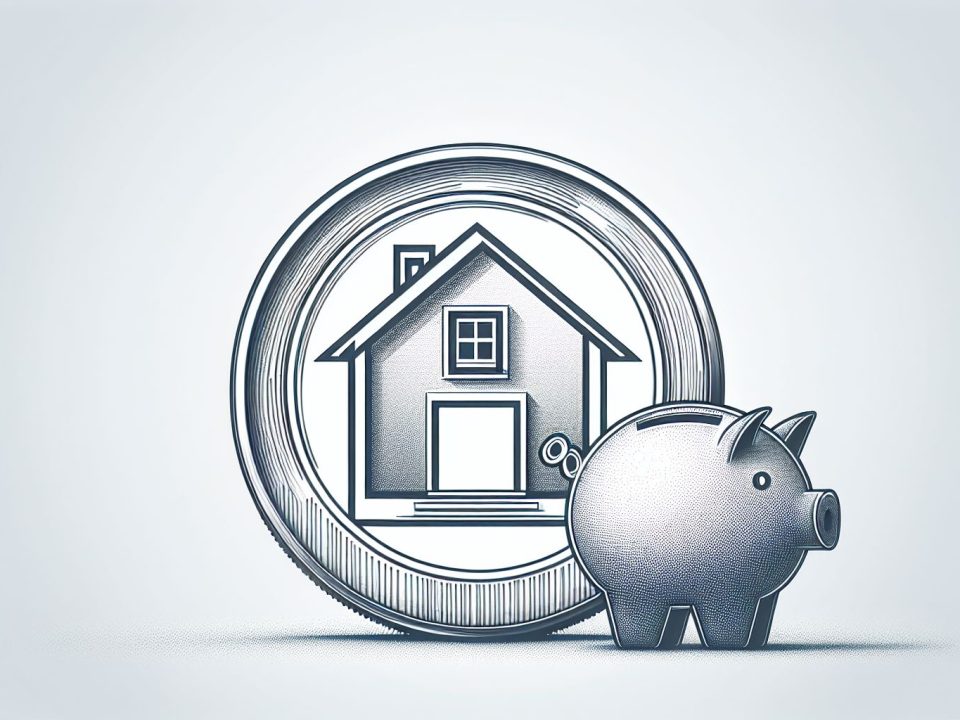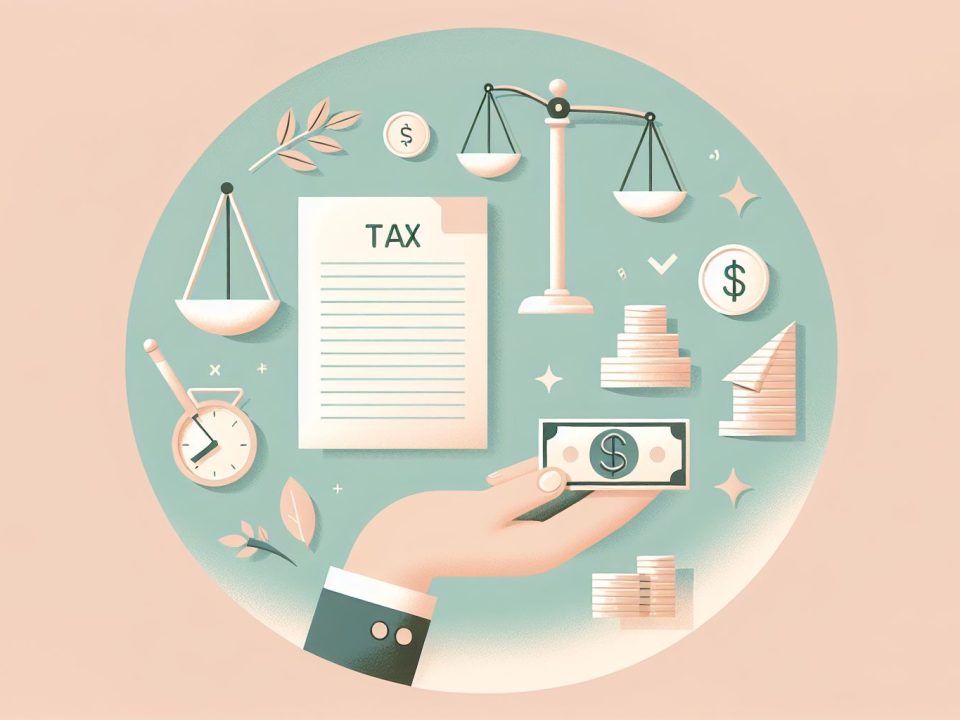
Master Your Inventory Turnover Ratio Calculation
November 2, 2025Guide to Tax Deductions for Residential Rental Properties
If you own a rental property, understanding which expenses you can and cannot deduct is crucial for optimizing your tax position and avoiding costly mistakes. This comprehensive guide breaks down the key rules, recent legislative changes, and practical considerations for New Zealand rental property investors.
The Fundamental Rule for Claiming Rental Property Tax Deductions
For any expense to be tax-deductible against your rental income, it must meet one key criterion: the expense must be incurred in generating rental income while the property is either rented out or genuinely available for rent. This principle forms the foundation of all rental property tax deductions and helps distinguish between legitimate business expenses and personal or capital costs.
Deductible Expenses: Your Tax-Saving Opportunities
Ongoing Operating Costs
Rates and Insurance
Local council rates and property insurance premiums are fully deductible as they’re essential for maintaining and protecting your rental property. These represent clear ongoing costs of property ownership that directly support your rental income generation.
Property Management and Professional Fees
- Property management fees paid to real estate agents
- Accounting fees for preparing rental income tax returns
- Legal costs under $10,000 related to purchasing the rental property
Maintenance and Cleaning
Regular cleaning between tenancies and routine maintenance work that keeps the property in its existing condition are deductible. This includes cleaning carpets, touching up paint, and fixing minor wear and tear issues.
Travel Expenses
Reasonable travel costs for property inspections, meeting tenants, or visiting the property for maintenance purposes can be claimed. Keep detailed records including dates, purposes, and distances traveled.
Low-Value Assets
Items costing under $1,000 that aren’t permanently attached to the building can be claimed immediately. This might include small appliances, basic furniture, or maintenance tools.
Mortgage Interest (With Important Limitations)
Current Rules (2024 Update)
The interest deductibility landscape has changed significantly. As of April 1, 2024, investors can claim 80% of their mortgage interest expenses, with full reinstatement to 100% scheduled for April 1, 2025. This represents a reversal of previous policy that was phasing out interest deductions entirely.
Historical Context
The previous rules, implemented from October 1, 2021, had severely restricted interest deductions for properties purchased after March 27, 2021, with exemptions only for “new builds.” The government had been phasing out interest deductions progressively, but these changes have now been superseded by the more investor-friendly 2024 updates.
Depreciation on Chattels
Chattels are moveable items that don’t form part of the building structure. Common depreciable chattels in rental properties include:
- Kitchen appliances (ovens, dishwashers, refrigerators)
- Heat pumps and air conditioning units
- Carpets and curtains
- Furniture provided with furnished rentals
Learn more: Understanding Depreciation: A Key to Maximizing Your Tax Benefits
Professional Valuations
For properties with high-value chattels, engaging a professional valuer to identify and value these items for depreciation purposes can maximize your tax benefits. However, for properties with outdated or low-value chattels, the cost of professional valuation may exceed the potential tax savings.
Non-Deductible Expenses: What You Cannot Claim
Capital Expenses
Property Purchase Costs
- The purchase price of the property
- Agent commission for buying and selling
- Legal costs over $10,000
- Loan application fees and establishment costs
Principal Loan Repayments
Only the interest portion of mortgage payments is potentially deductible (subject to the rules above). Principal repayments that reduce your loan balance are not deductible as they increase your equity in the property.
Improvements and Additions
Any work that goes beyond maintaining the property’s existing condition falls into the capital category. This includes:
- Adding new rooms or extending the property
- Installing new fixtures that weren’t there before
- Upgrading systems beyond their original specification
- Major renovations that increase the property’s value
Repairs and Maintenance: The Critical Distinction
Not all repair and maintenance costs are deductible. The key test is whether the work merely restores the property to its original condition or goes beyond that to improve it.
Deductible Repairs
- Fixing a broken window with like-for-like replacement
- Repainting walls in the same color scheme
- Replacing worn carpet with similar quality carpet
- Fixing plumbing leaks
Non-Deductible Improvements
- Replacing basic carpet with premium flooring
- Upgrading from basic to designer fixtures
- Extensive renovations that modernize the property
- Work completed before the first tenant moves in or after the final tenant moves out (unless it’s genuine wear and tear from previous tenancies)
Ringfencing Rules: A Game-Changing Restriction
How Ringfencing Works
Under current ringfencing rules, if your rental property expenses exceed your rental income, you cannot offset these losses against other income sources like salary, wages, or business profits. Instead, rental losses must be carried forward to offset future rental profits from the same or other rental properties.
Universal Application
These rules apply regardless of how you own your rental property:
- Individual ownership
- Company ownership
- Trust ownership
- Partnership arrangements
Strategic Implications
Ringfencing has fundamentally changed rental property investment strategies. Investors can no longer rely on rental losses to reduce their overall tax burden, making positive cash flow properties more attractive than highly-leveraged negative cash flow investments.
Tips to manage Rental Property Tax Deductions
Record Keeping Excellence
Maintaining detailed records is essential for maximizing deductions and surviving any IRD audit:
- Keep all receipts and invoices
- Maintain a property-specific bank account
- Document the business purpose of all expenses
- Take photos of repair work before and after
- Keep correspondence with tenants and property managers
Technology Solutions
Modern cloud-based accounting software like Xero can streamline rental property financial management:
- Automatic bank feed connections
- Easy expense categorization
- Built-in reporting for tax purposes
- Collaborative access for accountants
Professional Guidance
Given the complexity of rental property taxation and recent legislative changes, professional advice from Chartered Accountants at Business Like NZ Ltd is invaluable. Tax rules continue evolving, and staying current with legislation helps avoid costly mistakes while maximizing legitimate deductions.
Looking Ahead: Legislative Trends
The rental property tax environment remains dynamic. Recent changes to interest deductibility rules demonstrate how quickly the landscape can shift. Successful rental property investors stay informed about:
- Proposed legislative changes
- IRD interpretation updates
- Court case outcomes that clarify tax rules
- Industry best practices
Conclusion- NZ Rental Property Tax Deductions
Understanding deductible versus non-deductible expenses for rental properties requires careful attention to detail and ongoing education about tax rules. The fundamental principle remains constant: expenses must be incurred in generating rental income from properties available for rent.
Recent changes, particularly around interest deductibility and ringfencing, have significantly altered the rental property investment landscape. While some restrictions remain challenging for investors, the partial restoration of interest deductions from 2024 provides welcome relief.
Success in rental property investment taxation comes from meticulous record-keeping, understanding the distinction between capital and revenue expenses, and staying current with legislative changes. When in doubt, professional advice can save money and prevent costly mistakes that might only surface during an IRD review.
The key is treating your rental property as the business it is, maintaining professional standards in financial management, and leveraging available technology and professional expertise to optimize your tax position within the legal framework.



